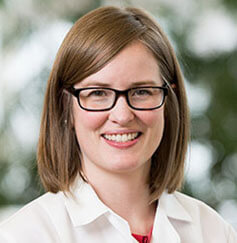
Recovery After Severe COVID Infection Poses Unique Challenges
UM Health LabBlog 8/5/20
According to Michigan Medicine experts who have been studying the downstream effects of critical illness for years, the pandemic will have severe effects on the lives of those who are eventually discharged from the hospital.
“With the virus itself causing severe illness, combined with the challenges of delivering healthcare [for these patients] means that issues after severe COVID-19 may be multiplied, and the time to recovery longer,” says Hallie Prescott, M.D., assistant professor of pulmonary diseases and critical care medicine. She notes that existing studies of the aftermath of pneumonia, sepsis and acute respiratory distress syndrome offer clues to what awaits COVID patients. For example, says Prescott, most patients with these illnesses eventually recover their lung function.
Yet many patients report lingering weakness, exercise intolerance and reduced quality of life after an ICU stay. And with COVID, there are many unknowns. “Most studies look at patients up to a year after their illness. We haven’t had this around long enough to have those studies coming out.”
Read the full article by clicking on the title link.

